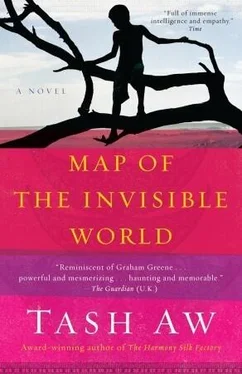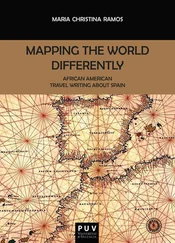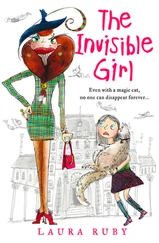Tash Aw - Map of the Invisible World
Здесь есть возможность читать онлайн «Tash Aw - Map of the Invisible World» — ознакомительный отрывок электронной книги совершенно бесплатно, а после прочтения отрывка купить полную версию. В некоторых случаях можно слушать аудио, скачать через торрент в формате fb2 и присутствует краткое содержание. Год выпуска: 2010, Издательство: Spiegel & Grau, Жанр: Современная проза, на английском языке. Описание произведения, (предисловие) а так же отзывы посетителей доступны на портале библиотеки ЛибКат.
- Название:Map of the Invisible World
- Автор:
- Издательство:Spiegel & Grau
- Жанр:
- Год:2010
- ISBN:нет данных
- Рейтинг книги:4 / 5. Голосов: 1
-
Избранное:Добавить в избранное
- Отзывы:
-
Ваша оценка:
- 80
- 1
- 2
- 3
- 4
- 5
Map of the Invisible World: краткое содержание, описание и аннотация
Предлагаем к чтению аннотацию, описание, краткое содержание или предисловие (зависит от того, что написал сам автор книги «Map of the Invisible World»). Если вы не нашли необходимую информацию о книге — напишите в комментариях, мы постараемся отыскать её.
comes an enthralling novel that evokes an exotic yet turbulent place and time—1960s Indonesia during President Sukarno’s drive to purge the country of its colonial past. A page-turning story,
follows the journeys of two brothers and an American woman who are indelibly marked by the past — and swept up in the tides of history.
Map of the Invisible World — читать онлайн ознакомительный отрывок
Ниже представлен текст книги, разбитый по страницам. Система сохранения места последней прочитанной страницы, позволяет с удобством читать онлайн бесплатно книгу «Map of the Invisible World», без необходимости каждый раз заново искать на чём Вы остановились. Поставьте закладку, и сможете в любой момент перейти на страницу, на которой закончили чтение.
Интервал:
Закладка:
“… the Indonesian Revolution has become a rocky mountain shooting fire amid the ocean of mankind’s struggle to build a new world free of exploitation of man by man, free of exploitation of nation by nation. My fellow revolutionaries, there is a phrase in Italian , Vivere Pericoloso . This means, To Live Dangerously. Yes, my brothers! You have understood me. For Indonesia and every other country that strives to be free, this is the Year of Living Dangerously. It is our duty as revolutionaries to do so.”
“At last we’re getting somewhere,” Din said. He was about to continue when Z lifted a finger to her lips, slowly, almost theatrically; Din’s mouth lay half-open, his chin lifted in defiance, but he fell silent nonetheless. Adam looked at Z’s curiously masculine index finger, poised lightly in front of — but not touching — her delicate lips. Her gaze lit briefly on Adam before returning to the radio, as if instructing him to resume listening to the speech.
“In the last few hours, brave Indonesian soldiers have begun to strike at the heart of this Malaysia that British Imperialists are so proud of. Here is proof of Living Dangerously. Our forces are now just a hundred miles from Kuala Lumpur, where the lackeys of Imperialism cower from us. They thought we were afraid. They thought we would not dare. They thought that the might of America would save them, but it will not. The British and Americans who seek to control the free world will be crushed in Southeast Asia. They will meet the same fate as the French in Vietnam. In the last few weeks a mighty fleet of British aircraft carriers and destroyers was forced to flee from us. Why? Because I will not allow the enemy’s foot to step on the proud rampaging Indonesian Bull. It is no longer time to be conciliatory. Our revolution has foes everywhere. We have a duty to attack, to destroy every power, whether foreign or not, native or not, that endangers the security and the continuation of the revolution.”
Z shifted in her seat. “I don’t like the tone of this,” she said. Her brow was only faintly troubled by a frown, but it was enough of a signal for the others to start a debate.
“The country is starving — let’s fight expensive wars with the Americans!”
“What a convenient excuse to suppress anyone who dares to oppose him!”
“Revolution? What revolution? He has no ideology. Listen, listen …”
“… I know a science that is efficacious, namely, Marxism. As you know, I am a friend of Communists because Communists are revolutionary people, and I am a friend of all revolutionary people, whatever their cause, be it religion or ideology….”
Z spoke again, more firmly this time. “This man is unbelievable. He has no idea what Marxism is. It’s just a word he’s heard. He wants to keep everyone happy but he can’t do so any longer. He shouldn’t be allowed.”
“As I wrote in my satirical epic poem in last month’s Z,” said the long-haired poet, “our dear president has supplanted the state in controlling the means of production in a classless society.”
“It makes me so angry,” someone else added, “because the economics and demographics of Indonesia would make it an ideal Communist state. That’s what my thesis is all about.”
There were more voices competing for attention now; the radio was forgotten. Din pushed his chair back quietly and tugged at Adam’s elbow. “Let’s go,” he said. Adam did not want to leave. He wanted to hear the things being said. It surprised and excited him to have understood the things they were saying — not everything, of course, but the general sense of it. They were people his own age, people who were not too dissimilar from him, he thought; they were not unschooled kids from the Moluccas but people whose complexities he thought he could understand. He wanted to stay.
“Come on,” Din said, continuing to pull at him. Adam did not resist; he did not want to make a scene.
Once they were out in the narrow alleys of the kampung , Din began to speak with his usual fervor. “It’s always the same with those guys — all talk, no action. PhD this, modern Marxist theory that. What good does Z magazine do for Indonesia? It’s just toilet paper. I wrote one article for them on the need for regime change. Good, very good, that Zubaidah girl says. Then I wrote another one, saying the only way to do this is by forceful means, and she says”—he mimicked her smooth voice and smart vowels—“‘We do not subscribe to such things.’ What use is a Communist revolutionary magazine that doesn’t subscribe to action? Twenty years of independence and look where we are. Come on, you’re going to see what real revolutionaries look like.”
From a distance Adam did not recognize the crowd as being made up of people. He saw a dark, amorphous band that seemed to hover just above where he thought the ground should be, erasing all detail of life and obscuring the buildings beyond it. The flags atop the presidential palace were just visible above this band of noncolor, but otherwise the city seemed to have disappeared. Perhaps it was the heat that induced this mirage, he thought, or maybe there was something wrong with him. He was very tired. He could not hear anything either, not even when they were quite close to the edge of the mass, this inhuman gathering of humans. The same silence he had experienced with Z surrounded him again, an absence of noise that acquired a weight of its own, like the soundlessness of being under water. When he dipped his head beneath the waves and kicked until his body skimmed the top of the reef, it was this that he felt: a noiseless void pressing against his temples.
They stepped into the hot swell of bodies: the sour smell of old clothes on unwashed bodies. Din forced his way through the crush, pushing people aside with one hand, holding on to Adam’s wrist with the other, as if fighting through dense foliage. The bodies around them gave way with only minimal resistance; all eyes were fixed on some invisible point in the distance. As they waded deeper into this swamp Adam heard the same voice he had heard before: rhythmic, cajoling, powerful. It was impossible to tell where the speaker was — his voice seemed to be coming from all around them, becoming louder as they pushed farther forward. It was more urgent than before, quickening as the beautiful baritone dropped to little more than a whisper, each syllable compressed for emphasis, as insistent as a torrent of water forcing its way through a crack in a wall. It had been more than two hours since the speech had begun, but the voice did not seem to tire.
Adam could see the palace now, the brilliant white stone coming into view over the heads of the people in front of them; they were slowing down; the bodies were no longer giving way but standing firm: a wall of slick smooth shirtless torsos. “ … we approach the moment when each and every individual who cares for the future of humanity must fight….” Din continued to grip Adam’s wrist even though they had ceased to move; Adam pulled away slightly, taking half a step back, but he was trapped by someone else pressing against him. Suddenly the space around him had disappeared; there was no air, just the stale, salty smell of skin and hair that forced its way into his nose and mouth and filled his lungs. There was a movement in the crowd, a tremor that Adam could feel working its way toward him, and then someone stepped on his foot, crushing his toes even as an elbow caught him in the rib cage; and yet he could not fall, for there were bodies around him, pressing tightly on all sides. “… we must rise up, rise up and fight, fight, to live as free human beings as God intended….” There was a cry in the crowd, an indistinct roar of a thousand different words being shouted at once; and again, rising and then dying away sharply like a sudden squall out at sea, when the rains come from nowhere and bear down upon you, churning the waves into a froth before disappearing, leaving everything calm again. Adam found that he could not breathe. He knew that his mouth was open, that his chest rose and fell; but he knew, nonetheless, that he was not breathing. Maybe I am going to die, he thought; I am going to die alone, in this sea of skin. He looked for Din but glimpsed only part of his face, for someone was obscuring him. He could still feel Din’s hand on his wrist, though, gripping tightly. Yet he could not locate his wrist — his arm was outstretched, pulled far from his body, and he could not see it. I am going to die, he thought. He felt calm about it. There was nothing he could do about it now. Another cry punctured the air and this time it did not fade away but grew louder: the sound of one million people cheering and shouting. Adam felt his bones vibrate with this noise; he felt quite unable to distinguish it from his own body.
Читать дальшеИнтервал:
Закладка:
Похожие книги на «Map of the Invisible World»
Представляем Вашему вниманию похожие книги на «Map of the Invisible World» списком для выбора. Мы отобрали схожую по названию и смыслу литературу в надежде предоставить читателям больше вариантов отыскать новые, интересные, ещё непрочитанные произведения.
Обсуждение, отзывы о книге «Map of the Invisible World» и просто собственные мнения читателей. Оставьте ваши комментарии, напишите, что Вы думаете о произведении, его смысле или главных героях. Укажите что конкретно понравилось, а что нет, и почему Вы так считаете.












